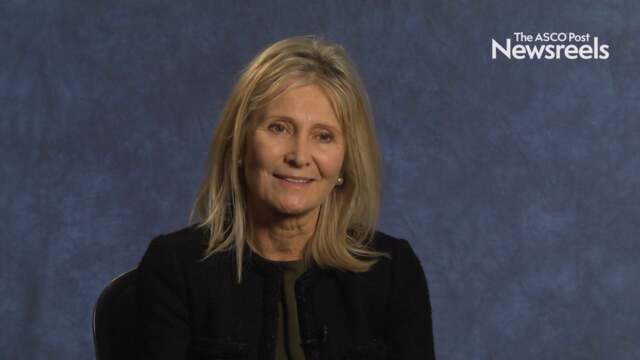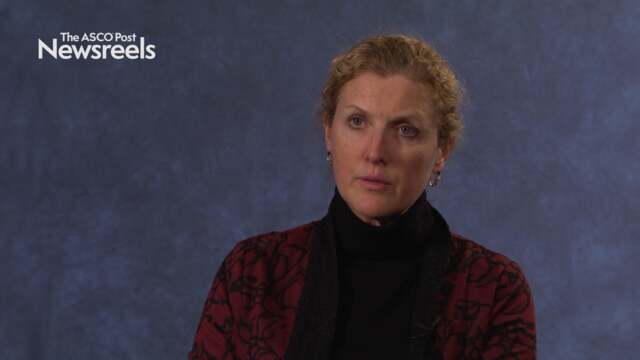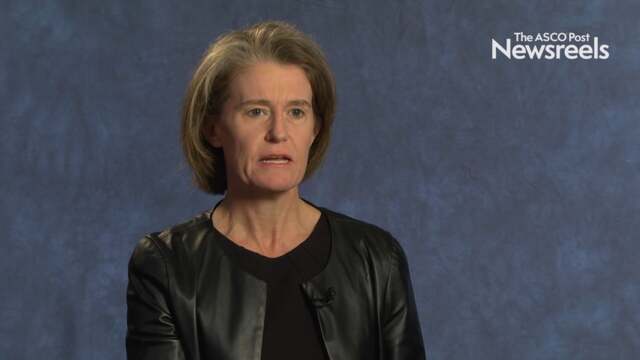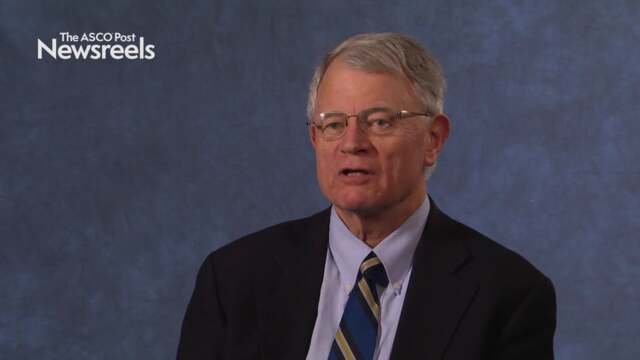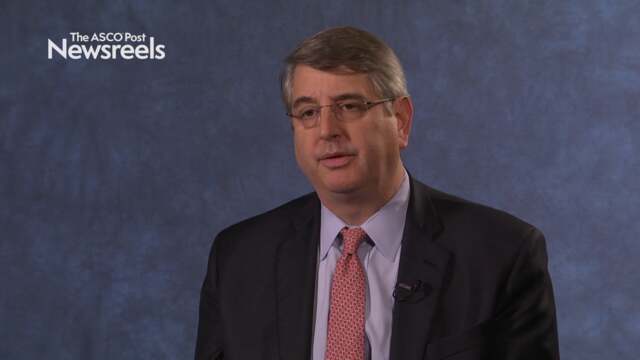Eun-Sil Shelley Hwang, MD, on DCIS: Results of the CALGB 40903 Trial
2017 San Antonio Breast Cancer Symposium
Eun-Sil Shelley Hwang, MD, of Duke University Medical Center, discusses study findings on primary endocrine therapy for estrogen receptor–positive ductal carcinoma in situ (Abstract GS5-05).
Silvia C. Formenti, MD, of Weill Cornell Medicine, discusses the high therapeutic potential of combining radiotherapy with immunotherapy and findings that show radiation dose and fractionation seem particularly relevant to the success of abscopal responses. The science has now matured to clinical translation.
Lisa A. Carey, MD, of the University of North Carolina, discusses the long-term follow-up of CALGB 40502/NCCTG N063H, a phase III study of weekly paclitaxel compared with weekly nanoparticle albumin bound nab-paclitaxel or ixabepilone with or without bevacizumab as first-line therapy for locally recurrent or metastatic breast cancer (Abstract GS3-06).
Elizabeth A. Mittendorf, MD, PhD, of The University of Texas MD Anderson Cancer Center, discusses the growing role of immunotherapy in treating breast disease, the evidence of biomarkers that may be associated with response to therapy, and the opportunities to perform robust correlative studies.
Louis Fehrenbacher, MD, of Kaiser Permanente, discusses study findings comparing adjuvant chemotherapy with doxorubicin and cyclophosphamide followed by weekly paclitaxel—or docetaxel and cyclophosphamide—with or without a year of trastuzumab in women with node-positive or high-risk node-negative disease (Abstract GS1-02).
Harold J. Burstein, MD, PhD, of the Dana-Farber Cancer Institute, discusses study findings on a comparison of adjuvant tamoxifen plus ovarian function suppression vs tamoxifen in premenopausal women with hormone receptor–positive breast cancer (Abstract GS4-03).
